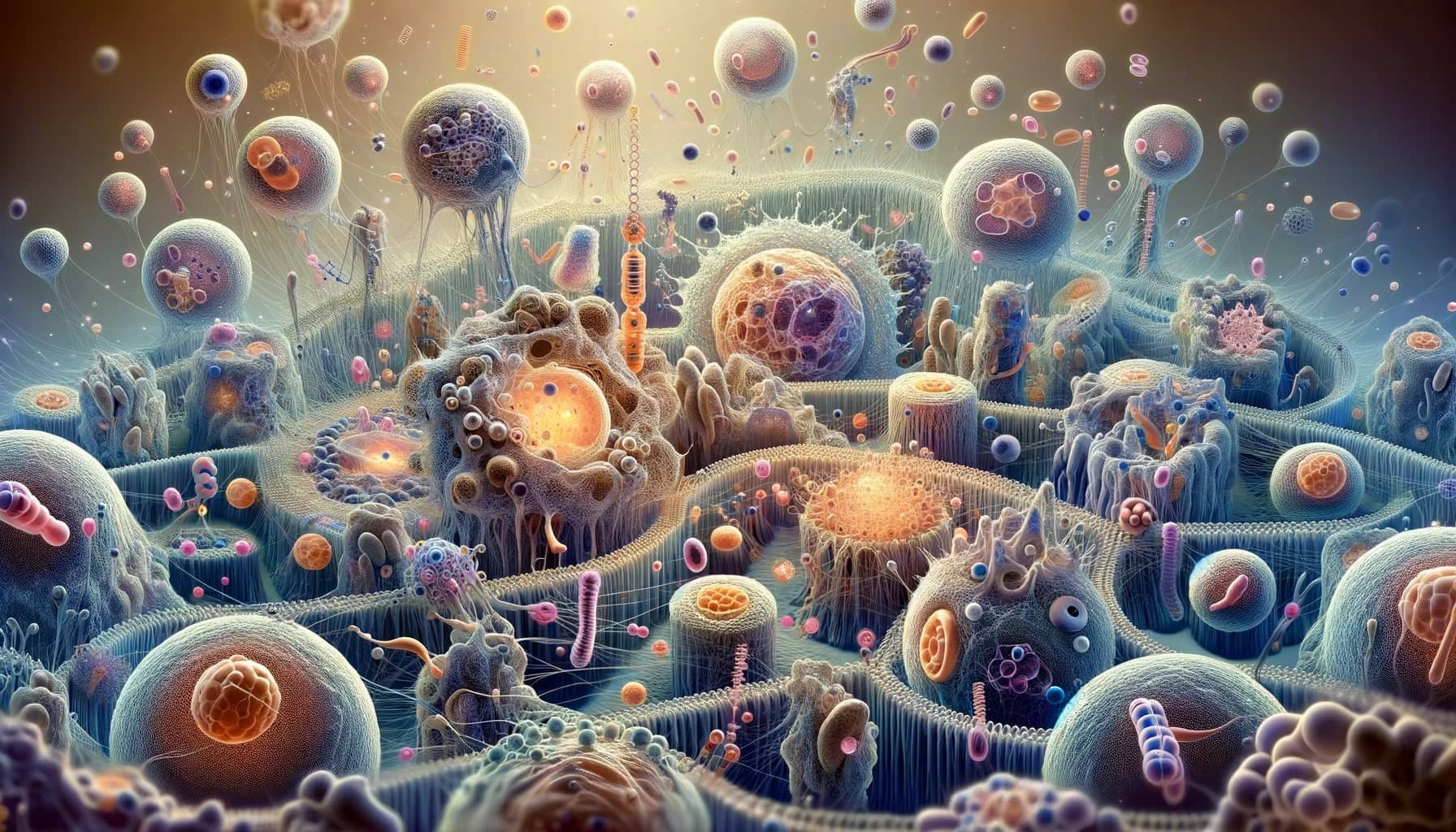
Understanding Aging: How Changes in Cell Communication Affect Us
As we get older, the way our cells talk to each other changes a lot. This change affects our body’s ability to stay healthy and fix itself. This process is known as altered intercellular communication, and it includes changes in different cell signaling systems, like those that involve adrenaline, dopamine, insulin, and sex hormones, especially after we lose our reproductive abilities.
How Aging Changes Cell Communication
The main reason for these changes is something going on inside the cells themselves, specifically in the way senescent cells (old cells that don’t divide anymore) communicate. This messed-up communication leads to problems like increased inflammation, weaker defense against diseases, and issues with how our genes interact with the bacteria in our bodies, causing imbalances.
Blood Factors: Aging and Youth
Researchers have found certain factors in our blood that can either speed up aging or help us stay young. For instance, some substances in the blood of older people can make younger mice age faster, which means these substances are linked to aging. On the other hand, young blood can make older mice feel younger again, improving their tissue renewal and cell functions.
Importance of Long-Distance and Local Cell Chats
Both long-distance (like through the nervous system) and close-up cell communication are key in aging. For example, the nervous system affects how other parts of our body age. Nearby cells also send signals to each other using molecules and specific factors that change as we age, influencing the aging process.
The Extracellular Matrix and Aging
The extracellular matrix (ECM) – a network of proteins around cells – also changes as we get older. It gets damaged in various ways, leading to stiffness and fibrosis (a kind of scarring in tissues). Factors that make this worse include TGF-b and certain mechanotransducers, which are molecules that help cells sense their environment. This stiffening not only affects how cells work but also triggers more fibrosis.
Looking Ahead: Using This Knowledge for Better Aging
Understanding all these changes gives us ideas for new treatments to age healthily. For example, targeting the ECM has shown promise in making cells young again in animal studies. The big challenge now is to turn these discoveries into real treatments for people to help counter the negative effects of how aging changes cell communication.
